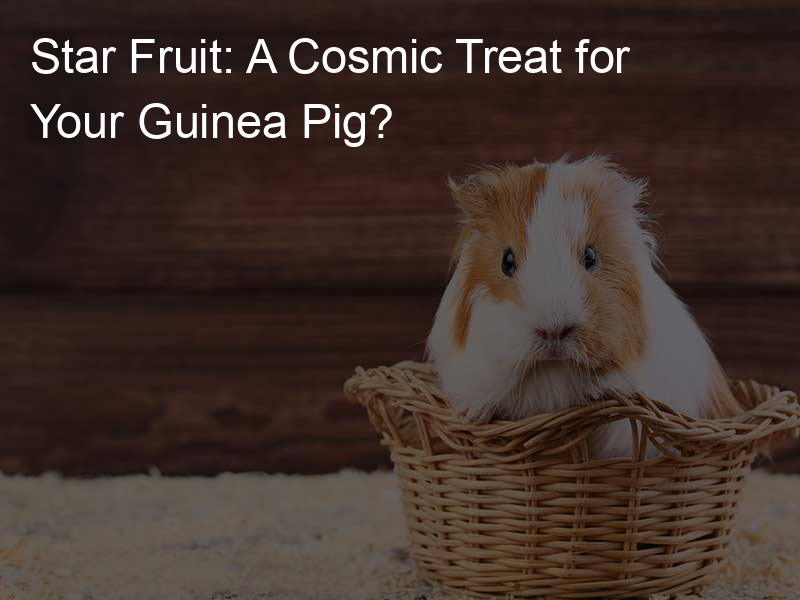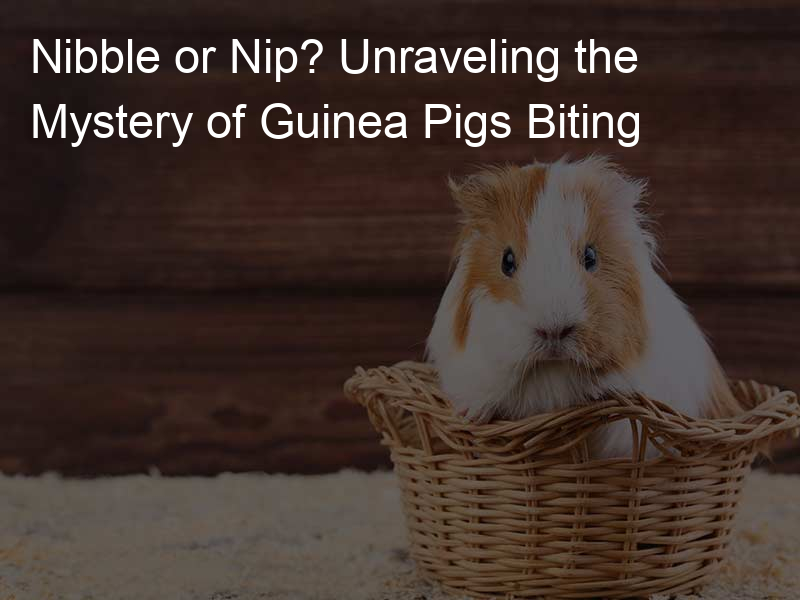Introduction: Star Fruit and Guinea Pigs
To feeding your pet, it’s essential to understand what they can and cannot eat. In this article, we will explore the star fruit and how it fits into the diet of a guinea pig.
-
- Exploring the Star Fruit
Also known as carambola, is a tropical fruit that’s recognized for its unique star shape when sliced. It’s juicy, crunchy, and has a sweet and sour flavor that makes it a favorite among many. It’s packed with vitamins and minerals, including vitamin C, potassium, and antioxidants. Learn more about star fruit here.
-
- The Dietary Needs of Guinea Pigs
They are herbivores, meaning they eat plants. Their diet primarily consists of hay, fresh vegetables, and fruits. They require a high amount of vitamin C as they cannot produce it themselves. Not all fruits and vegetables are safe for them. Some can cause digestive issues or other health problems.
Can Guinea Pigs Eat Star Fruit?
-
- Benefits of star fruit for guinea pigs
Also known as carambola, is a tropical fruit packed with numerous health benefits. It’s rich in antioxidants, which can help boost immune system. Star fruit also contains a high amount of vitamin C, a nutrients as they cannot produce it on their own. This fruit is also low in calories and high in fiber, making it a healthy snack for your pet.
-
- Potential risks and precautions
Feed in moderation, this is because star fruit contains a high amount of oxalates, which can lead to kidney stones in guinea pigs if consumed excessively. Also, the skin of the star fruit can be tough and difficult for guinea pigs to digest, so it’s best to remove it before feeding. Always wash the fruit thoroughly to remove any pesticides or chemicals that could harm your pet.
What Other Fruits Can Guinea Pigs Eat?
Can Guinea Pigs Eat Bananas?
-
- Benefits of Bananas for Guinea Pigs
Rich in vitamins and minerals, such as vitamin C, vitamin B6, and potassium, which are essential for your guinea pig’s health. Vitamin C, in particular, they cannot produce it on their own. A lack of vitamin C can lead to scurvy, a disease that can cause lethargy, weight loss, and other health issues in guinea pigs. This can also serve as a tasty treat that your pet will enjoy.
-
- Potential Risks and Precautions
Too much sugar can lead to obesity and diabetes in guinea pigs. Also, the banana peel, while not toxic, can be hard for guinea pigs to digest and may cause choking if not cut into small pieces. It’s best to remove the peel and cut the banana into small, bite-sized pieces before feeding.
Can Guinea Pigs Eat Grapes?
-
- Benefits of Grapes for Guinea Pigs
A rich source of Vitamin C, a nutrient that guinea pigs cannot produce on their own. This vitamin is for their overall health and well-being. It also contain a good amount of fiber, which aids in digestion. The natural sweetness of grapes can make them an appealing treat.
-
- Potential Risks and Precautions
High in sugar, which can lead to obesity and other health issues if consumed in excess. It’s recommended to feed your guinea pig no more than one or two at a time, and not every day. Wash thoroughly to remove any pesticides, and remove the seeds before feeding them.
Can Guinea Pigs Eat Blueberries?
-
- Benefits of Blueberries for Guinea Pigs
Packed with vitamins and antioxidants that are beneficial. They contain vitamin C, which they cannot produce it on their own. This vitamin helps boost their immune system and keeps them healthy. The antioxidants also help to fight off harmful free radicals in their bodies.
-
- Potential Risks and Precautions
It contain sugar, which can lead to obesity and dental problems in guinea pigs if consumed in large amounts. Feed them in moderation, ideally as an occasional treat rather than a staple in their diet. Also, make sure they are fresh and thoroughly washed to remove any pesticides before feeding them.
Can Guinea Pigs Eat Dragon Fruit?
-
- Benefits of Dragon Fruit for Guinea Pigs
Numerous health benefits that can be great, it is rich in antioxidants, which can help protect your pet’s cells from damage. It also contains vitamin C, a nutrient as they cannot produce it on their own. This fruit is also high in fiber, which can aid in digestion and prevent constipation.
-
- Potential Risks and Precautions
This fruit contains sugar, which can lead to obesity and dental problems if consumed in excess. Also, the seeds in dragon fruit can pose a choking hazard, so it’s best to remove them before feeding. Always introduce new foods gradually to avoid upsetting your pet’s stomach. If you notice any adverse reactions, like diarrhea or loss of appetite, stop feeding dragon fruit and consult your vet.
What Vegetables Can Guinea Pigs Eat?
- Carrots: A great source of Vitamin A, which is essential for your guinea pig’s eye health. However, they should be given in moderation due to their high sugar content. A small piece of carrot a few times a week is enough.
- Broccoli: Packed with vitamins and minerals. It’s a good source of Vitamin C, which guinea pigs need in their diet as they cannot produce it themselves. However, too much broccoli can cause bloating, so it should be given sparingly.
- Peppers: Especially bell peppers, are a fantastic source of Vitamin C. They can be given regularly to your guinea pig. Remove the seeds before feeding.
- Cucumbers: Mostly water, making them a hydrating snack. They can be given frequently, but due to their low nutritional value, they should not replace other vegetables.
- Spinach: Rich in vitamins A, C, and K. It also contains oxalates, which can lead to urinary problems. Should be given sparingly and not as a regular part of their diet.
Conclusion: A Balanced Diet for Your Guinea Pig
- Recap of fruits and vegetables suitable for guinea pigs: These include star fruit, apples, bananas, and oranges. For vegetables, carrots, cucumbers, and bell peppers are all great choices. These should be given in moderation alongside their staple diet of hay. Wikipedia provides a comprehensive list of suitable fruits and vegetables.
- Variety in a guinea pig’s diet: Feeding a range of fruits and vegetables ensures they get a mix of different nutrients. This helps to keep them healthy and prevents dietary deficiencies. Always introduce new foods gradually to avoid upsetting their digestive system.






